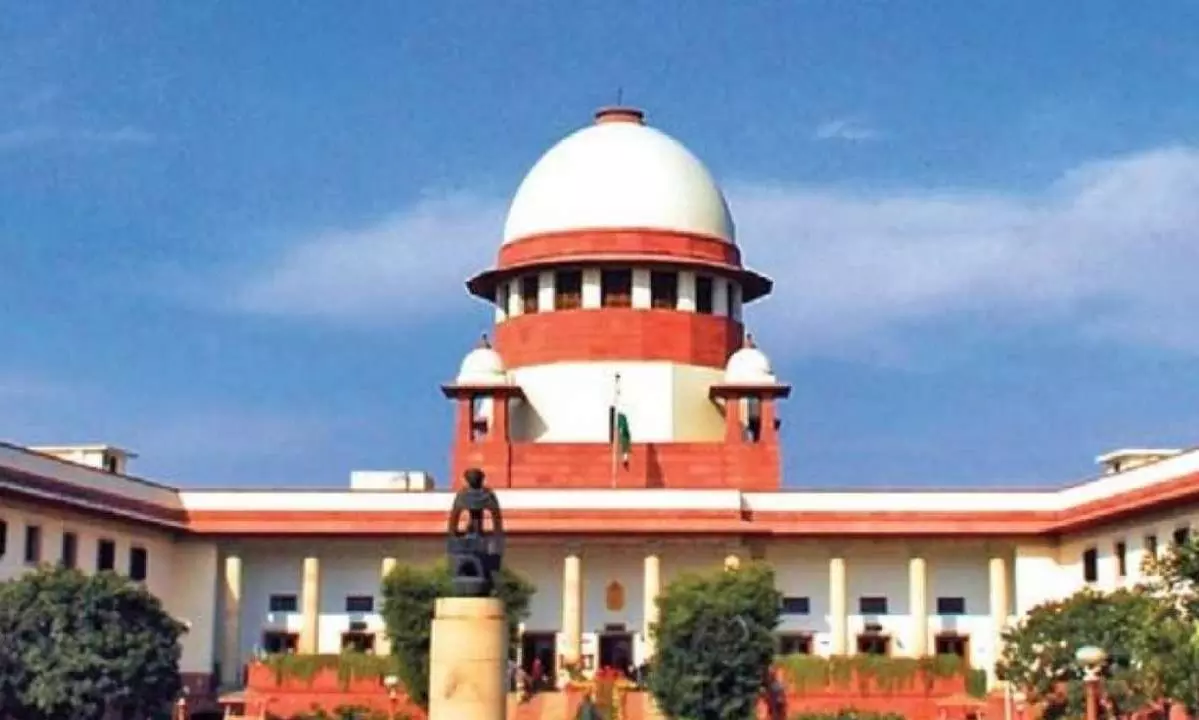
SC highlights the duty of press to speak truth to the state, rejects the sealed cover route
text_fieldsIn its judgement on the MediaOne case authored by Chief Justice DY Chandrachud, the two-judge bench of the Supreme Court which also included Justice Hima Kohli made some significant observations regarding the Centre's propensity to invoke the matter of national security whenever issues unpalatable to it come up and pulled up the Centre in effect for giving no room for dissent as is envisioned in a democracy. The court also highlighted the imperative of freedom of expression in a democracy and stressed that holding and publishing opinions against that of the state does not constitute an offence.
The bench directed the Ministry of Information and Broadcasting to issue the renewed broadcast licence to MediaOne within four weeks. The Ministry had refused to renew the channel's broadcast license for want of security clearance from the Ministry of Home Affairs, which in turn had presented a sealed cover report before the Kerala High Court, where the issue was first raised, to justify its decision. The High Court had said that though the nature and gravity of the issue are not discernible from the file, there "are clear indications that the security of the State and public order will be impacted" if permission is granted to MediaOne.
The apex court also came down heavily on the tendency of the executive to choose the sealed cover track saying that the Centre’s act of producing intelligence reports in a sealed cover in the High Court to procure an adverse decision against MediaOne was against natural justice. The bench observed that reports by investigative agencies impact decisions on the life, liberty, and profession of individuals and entities, and when they are given immunity from disclosure, it amounts to be antithetical to a transparent and accountable system. The mention of national security to not disclose them also deprives the party of natural justice and open justice.
The court said, "The mere involvement of issues concerning national security would not preclude the state's duty to act fairly. If the state discards its duty to act fairly, then it must be justified before the Court and the facts of the case. Firstly, the state must satisfy the court that national security concerns are involved. Secondly, the state must satisfy the court that an obligation of the principles of national justice is justified. These two standards that have emerged from the jurisprudence abroad resemble the proportionality standard".
Regarding the freedom of the press, the court said, "An independent press is vital for the robust functioning of a democratic republic. Its role in the democratic society is crucial, for it shines a light on the functioning of the State. The press has a duty to speak the truth and present citizens with hard facts, enabling them to make choices that prepare democracy in the right direction. The restriction on the freedom of the press compels citizens to think along the same tangent."
The Ministry of Home Affairs in its defence had also invoked the matter of MediaOne being anti-establishment citing its stances on the National Register of Citizens (NRC), Citizenship Amendment Act (CAA) and UAPA. The court dismissed the very obligation expected of the press to be in favour of the establishment and said "The critical views of the channel MediaOne on policies of the government cannot be termed anti-establishment. The use of such a terminology in itself represents an expectation that the press must support the establishment. The action of the Ministry of Information and Broadcasting by denying your security clearance to a media channel on the basis of the views with the channel is constitutionally entitled to hold produces a chilling effect on free speech and in particularly on press freedom".
The bench also dealt with the alleged connection of the ownership of MediaOne with the Jama'at-e-Islami Hind and said that the connection with the organisation was not clearly established in the first place and that it was not a legitimate ground to deny the licence to the channel. "The only piece of evidence in the file to link MBL to JeIH is the alleged investment in the shares of MBL. In support of this, IB has submitted a list of shareholders. However, there is no evidence on record linking them to JeIH. Thus, the allegation that MBL is linked to JeIH is fallacious. Firstly, because JeIH is not a banned organization and there is no material to conclude that the investment by JEIH sympathisers would affect India's security. And secondly, even if it is accepted that the investment by JEIH sympathisers would affect the security of the state, there is no material to prove that the shareholders are sympathisers of JeIH. In view of the discussion above, the purpose of denying security clearance does not have a legitimate goal or a proper purpose".

























